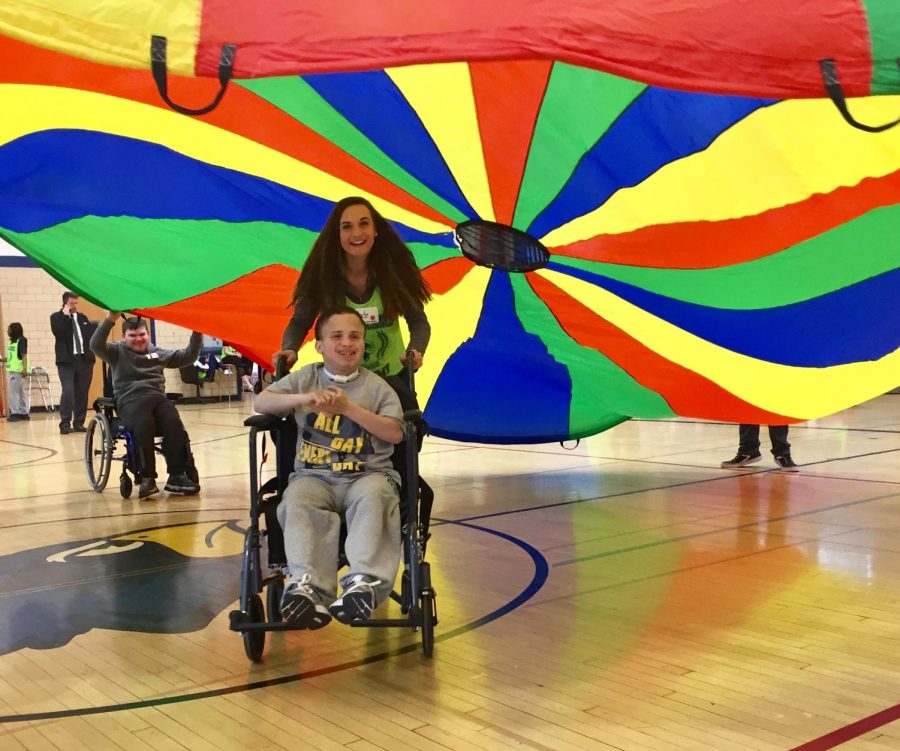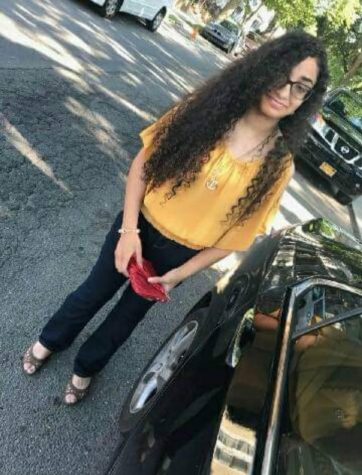Special Ed Program Builds Life Skills Alongside Academics
December 9, 2020
Kenwood is home to the special education program, FALS. F.A.L.S stands for Functional Academic Learning Support. The program is a county-wide program that supports student as early as kindergarten and ends when they age out of the school system at 21.
FALS is an essential part of our educational system and essential to the students it serves. Kenwood’s FALS teacher Mr. Weybright shares, “FALS students may have delays in how they learn math, reading, and writing. As a teacher, I help my students with many things other teachers do, but the help comes in different ways: more regular reminders, more visual learning (using illustrations, photos, even graphs), and teaching in smaller groups, so my students get more concentrated instruction.”
The FALS program does more than teach students their basic reading, writing, and arithmetic. It helps get them ready for the world. Part of their curriculum is the Community Based Instruction (CBI). Mr. Weybright shares, “Community Based Instruction means students are going into the community, and working in different local businesses, or gaining experience as citizens, in the community.”
Prior to school closing, once a week the FALS students visited local businesses such as PetCo, AMF Bowling, BCPL Essex, Alko Clothing, Lighthouse Senior Living Center and Spunk Fitness. Every Tuesday, Wednesday, and Thursday students are assigned to different job sites where they clean, organize, sort, and often interact with employees- gaining experiences like being part of the workforce and teamwork.
Last year, Kenwood FALS students made weekly trips to Walmart with a list of items Kenwood staff could request beforehand. Students gained practice finding items within the store, asking employees for assistance, and then handling money when paying for the items. “Delivering the items once back at school was a highlight for the students as well,” reflects Mr. Weybright.
These real life experiences help prepare students for life after Kenwood. Mr. Weybright shares, “They may also have a harder time doing things in their every-day activities that others may take for granted — sometimes that means holding a conversation about the news, or sometimes it’s even tying their shoes.”
Like with many special education programs across the country, many worry about how students that greatly benefit from services provided through programs like the FALS program are doing in a virtual setting. “As with all classes these days, there are many challenges, but I’ve also seen great improvements. Some students who, in the past, didn’t feel comfortable showing up in school, have now been able to participate in great ways, from the security of their homes. Some of the technology tools like Jamboard I’m using now because of virtual learning will be great tools for my students, even when we return to the building.”
Even though students can no longer make their weekly trips to Walmart they have been able to attend a virtual field trip to the San Diego Zoo. Ms. Phillips planned the virtual trip for students to learn about animal habitats.
Mr. Weybright and Ms. Phillips have been teaching the FALS program for five years and something he’d love to see more of for his students would be for them to interact with their peers outside of their classroom. “It’s always encouraging when teachers let me know about something they’re working on and invite us to get involved. Even if we’re not involved in the same ways, at least we’re getting the exposure to a new experience; which is something everyone benefits from.”
The FALS students also pair up with Kenwood’s Sports Science Academy students and get together monthly, giving students from both programs the chance to interact with others from outside of their daily realm at Kenwood. A lot of the lessons the SSA students present and share with the FALS students are about life skills and health in general.
The FALS program and its students is one that is often not understood and rarely even noticed but these students have much to offer their school and those that take the time to get to know them. “As a human, it’s easy for any of us to have stereotypes, without knowing a person. Getting to know a student gives any of us a new, truer perspective compared to our first impression. Getting to know a person allows us to see strengths, interests, and talents that we may not have imagined someone capable of,” shares Weybright.
These special education students aren’t just getting a special kind of education but once you get to know them you’ll see for yourself what makes them so special in the hearts of their families, friends, and teachers.

